-blog-header.jpg)
5th - Cockroaches
There are over 4000 species of cockroach around the world, with German and Oriental cockroaches being the most common in the UK, other species found in pest control are the Australian and American although these tend to be at a more reduced level.
Cockroaches can be found behind fridges, cupboards, and in wall spaces and damp floors. They especially thrive in dark, damp environments and dislike cold British weather so seek refuge in homes and buildings.
Cockroaches can carry harmful diseases such as even here in the UK such as Salmonella and Gastroenteritis. They are also a leading cause of allergic reactions in urban areas.
The presence of cockroaches in restaurants or public spaces signals a lack of hygiene and is a sure-fire way to get a restaurant closed down. Look out for faeces and damage to packaging, as well as being alert to strong odours surrounding serious infestations.
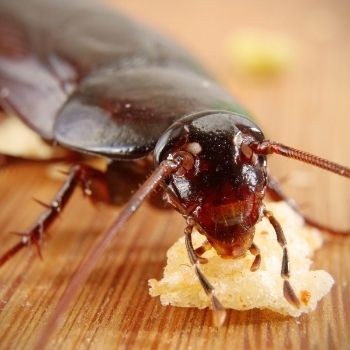
How do I get rid of cockroaches?
Organ-X Desi Dust works by absorbing moisture, fats and oils that insects like cockroaches need to survive and reproduce. It can be applied liberally around the home, even directly onto pets, animals and plants.
4th - Wasps
The UK Home is primarily subjected to attack by the Common and German Wasp, both species look identical and can only be really differentiated when being observed up close and personal through a magnifying glass.
Common wasps nests tend to run in the 100’s depending on the size and the length of time it has been established, however it is not uncommon to find large nests which have gone unnoticed throughout the season with numbers amassing 10’s of 1000’s. Nests have been reported in some rare cases to have contained over 50,000 individuals.
Wasps nests are constructed from natural material, this is wood which is chewed up to create a pulp which they tirelessly work and construct into intricate nesting systems that can be several metres across.
Wasps will begin their nests and colonies in the springtime, when the queen is waking from her long sleep. She begins to consume nectar nearby to regain her strength, ready to lay eggs.
During the summer months, the workers spend all their time tending to the nest, the grubs found within and caring for the queen, as the summer days fade the hirachi of the nest begins to break down the colony slowly collapses, this is when wasps are at their most aggressive and can become more of an issue.
These pests are more than a nuisance as wasp stings can be painful, as they penetrate the deepest layer of skin and inject a chemical alerting other wasps to your presence. It is important that you call professional help or exercise great caution when tackling the issue yourself. Anaphylaxis can present at anytime and is not something that most people think you are born with, you can get stung 100’s of times in your life and then just 1 more sting can trigger an anaphylactic shock reaction.
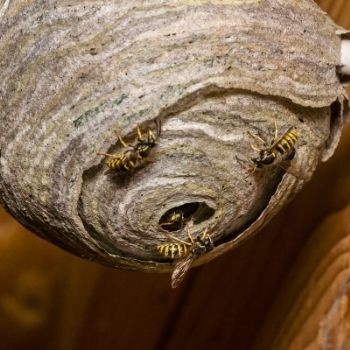
How do I get rid of wasps?
One tactic you can use if a nest is disrupted or a wasp is nearby is to make yourself as immobile as possible, since wasps have an acute sense of vision.
Some suggest peppermint oil and water act as a natural repellent to wasps, but it is too risky to leave it chance.
Insecto Pro Formula Wasp Nest Destroyer Foam kills wasps from a distance, while they are still in their nest. Upon contact, the foam will expand and kill the surrounding wasps, whether they are in your loft, shed or garage. There is even enough foam to treat three large nests!
3rd - Pigeons
Love them or hate them, pigeons can be a real pest in the UK.
There are an estimated 18 million pigeons in the UK according to the BBC and can make great pets for some people, but are just pests for the majority.
They can carry diseases such as psittacosis, a respiratory disease with flu-like symptoms that can be severe in elderly victims, which is transmitted from birds to humans through feather dust, contact with faeces or inhaling bird plumage.
Pigeons can be found in large flocks, feeding on scraps of food and leaving their droppings on pavements, buildings, houses, gardens and benches. Pigeon waste is in fact corrosive (and is considered a slip hazard) and the birds themselves can spread bird mites.
Just like rats, pigeons carry disease and should never be brought into the home, even though pigeons are often fed and thereby encouraged by people.
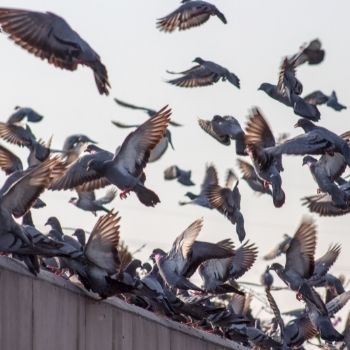
How do I get rid of pigeons?
They can be deterred by not feeding pigeons, cleaning up waste, and installing bird spikes on windowsills or roofs, but this may not be possible for most people.
To prevent pigeons - as well as cats and dogs - coming near your property, use the Racan Solar Sonic Animal Repeller.
It’s bionic sounds, flashing light and ultrasonic waves scare away pigeons and detect motion via its Passive Infrared sensor.
2nd - Rodents
Mice and rats shuffle indoors during the winter so they can breed, meaning infestations can quickly get out of hand and require swift action to combat.
The British Pest Control Association reported an increase of almost 80% in rodent activity during the November lockdown of 2020. Delayed bin collections and the closure or pubs and restaurants meant that rodents need look no further than your backdoor for food.
So, how do you know that you have a rodent infestation?
Fortunately, it's not too hard to tell. Listen out for the scurrying of little feet, look out for droppings and chewed-up cardboard as they may use it for nesting, and finally if you can smell ammonia then you may find rodent urine nearby.
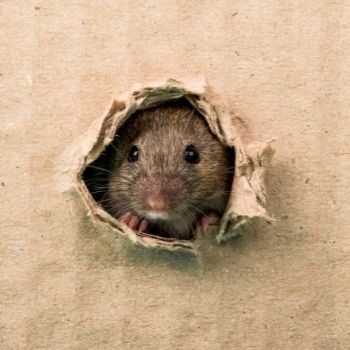
How do I get rid of rodents?
Before the cold sets in, you can take some preventative measures such as sealing up cracks or holes in buildings - particularly at ground level.
A lady in Newport found rat dropping on her windowsill during lockdown and said rats had "the run of the house" but her landlord would do nothing about it leading to flies and maggots under her floorboards. She tried to block the holes in her walls with carrier bags, but it didn't work.
For a more effective way to rid yourself of rodents, use Racan Force Rat & Mouse Killer Station. It is the ultimate method for controlling rats and is reusable. Simply use the paste bait to lure rats into the station - there is enough bait to catch 10 rats, or you can replenish the supply with Racan Force Paste or Racan Force Grain.
1st - Flies
Flies take the top spot for many reasons.
Do they ever really go away? The short answer is no. Flies are active all year long, but are particularly annoying during the summer and are much more than just a nuisance.
Even common house flies can carry millions of bacteria on the short hairs covering their bodies. Yes, that means they can land on sewage at 11am and land on your burger by lunchtime.
The WHO states that flies can transmit "dysentery, diarrhoea, typhoid, cholera" as well as Salmonella and E-coli when we eat foods that have been contaminated. All it takes for a fly to spread disease is contact, which is why it is such an effective pest.
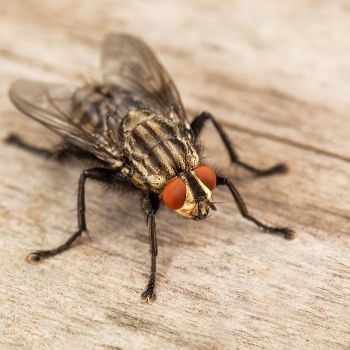
How do I get rid of flies?
There are some home remedies you can try, like cinnamon-scented oils, jam jars, cayenne pepper and even Venus fly traps. Some people even swear by electric fly swatters, but this doesn't tackle the real issue or prevent more flies causing the same problems.
Insecto Pro Formula Fly & Wasp Destroyer is one of the strongest sprays targeting flying insects in the UK. It is easy to use, just spray directly at the insect in question and it will kill on contact.
That concludes our list!
Stay tuned for more pest control advice and product suggestions.



-blog-header-(1)(1).png)

